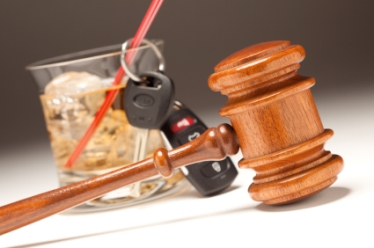South Dakota program reduces repeat DUI arrests
Allie Johnson
Get caught drinking and driving in South Dakota, and you might be forced to steer clear of alcohol altogether – and that means not even a sip of wine with dinner.
The state’s 24/7 Sobriety Program offers convicted repeat drunk drivers a choice: go to jail or join the program. If they pick the program, they agree to twice-a-day breath tests or other monitoring. At 7 a.m. and 7 p.m., they head to the nearest monitoring station – usually a local sheriff’s department – and blow into a device that can detect alcohol on their breath.
“You have to look a deputy sheriff in the eye, say you haven’t been drinking and then prove it,” South Dakota Attorney General Marty Jackley says. Since it can cost up to $67 a day to keep an inmate in jail, and almost 24,000 offenders have participated in the program, 24/7 is saving money, he says. Program participants pay a dollar for each breath test, Jackley says: “The program costs the taxpayers zero.”
First-of-its-kind program
In addition to being cost-effective, a new study shows the program is working. Researchers at the RAND Corp., a nonprofit that does research on public policy, looked at the program over six years, from its start in 2005 to 2011. Researchers found that the program reduced repeat DUI arrests by 12 percent and domestic violence arrests by 9 percent.
The program was the first of its kind in the country, says Beau Kilmer, co-director of the RAND Drug Policy Research Center. He says the study’s results suggest the program cuts down on problem drinking and improves public health.

Experts say the program’s success is tied, in part, to the frequent testing of participants, which is necessary because the body processes alcohol quickly, Kilmer says. Also, he says, the program imposes immediate – but not too severe – consequences for participants who slip up.
“We show people, if you fail you’re going to jail – we’re not playing games,” says Art Mabry, the 24/7 Sobriety Program coordinator for South Dakota. At the same time, participants who test positive for alcohol spend only a few days in jail the first time.
State officials say that in addition to saving money, the program has other positive effects. When offenders go to jail, for example, they lose their jobs, can’t pay child support and sometimes split from their families due to the stress of separation. But the program lets participants continue to contribute to society, Mabry says.
In most cases, program participants also can continue to drive. In some cases, camera-equipped ignition interlocks – which test a driver for alcohol before the car can start – are required, Jackley says. Like anyone with a DUI, participants will pay more for car insurance. The Illinois DUI Fact Book 2012 estimates that a DUI can raise insurance premiums by about $1,500 a year for at least three years.
Other states take note
Now, several other states are starting to adopt programs similar to South Dakota’s. State lawmakers in South Dakota established a 24/7 Sobriety Program there in 2007. In 2011, Montana started a similar program.
And, in the fall of 2012, the National Highway Traffic Safety Administration (NHTSA) said it will study the North Dakota 24/7 Program’s use of the continuous alcohol monitoring anklet (known as a Secure Continuous Remote Alcohol Monitor, or SCRAM bracelet), which tests the sweat on the ankle every half hour for traces of alcohol. The anklet also is used in South Dakota for some offenders, such as those who can’t take daily breath tests because they live too far from a testing station. NHTSA will conduct research to determine how states can use these bracelets most effectively.
Despite the success of South Dakota’s program, the state got a low score in a 2011 Mothers Against Drunk Driving (MADD) report that ranks states based on of five measures: sobriety checkpoints, required ignition interlocks for all convicted drunk drivers, increased penalties for driving drunk with a child passenger, no refusal of breathalyzer tests and driver’s license revocation for offenders.
South Dakota was one of only five states that received just one out of a possible five stars from MADD. To improve its score, South Dakota, which uses sobriety checkpoints, needs to put in place the other four measures and focus more on first-time offenders, says Frank Harris, MADD’s state legislative affairs manager. For example, the use of ignition interlocks in the 24/7 program is limited to repeat drunk drivers or first-time offenders with a blood-alcohol concentration of at least 0.17.
In South Dakota, Harris says, “there’s still plenty of work to be done.”
